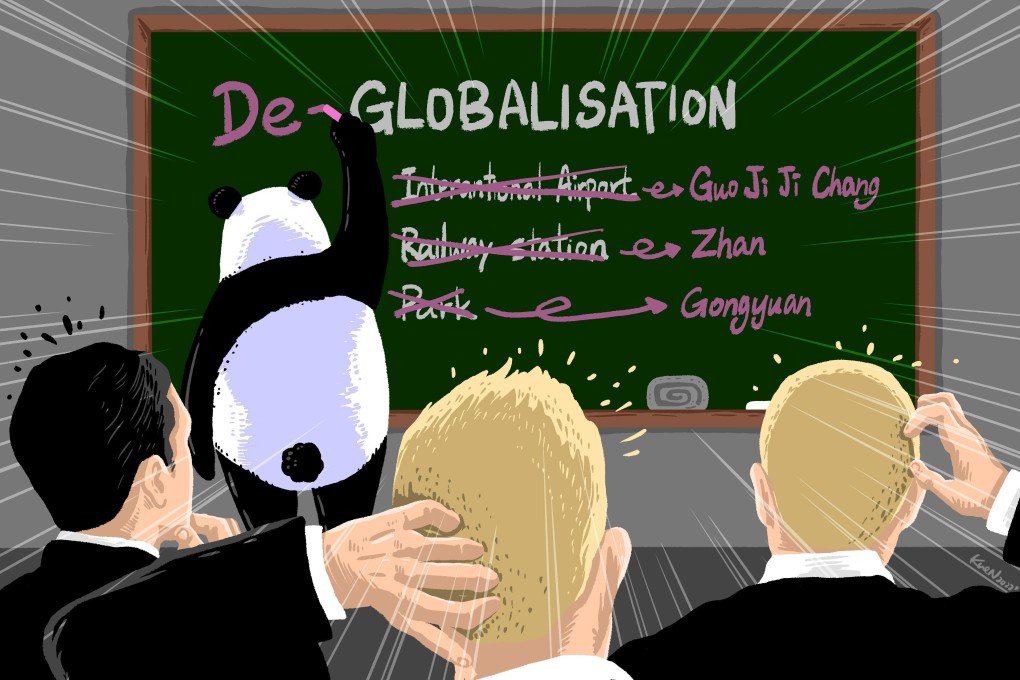Is the deglobalisation writing on the wall? How China is reversing cultural openness with the West
- In the decade or since Beijing hosted the Summer Olympics, the country’s relationship with developed economies has descended into antagonism and confrontation
- Public sentiment, official rhetoric and general contact has shifted as well amid the belief that others are trying to stop China’s rise

In the last two months, staff at subway stations in the Chinese capital Beijing and the neighbouring city of Tianjin have been on a mission.
Instead of maps pointing out the stop for Tianjin Binhai International Airport, the directions are now to Binhai Guo Ji Ji Chang. Beijing Railway Station is now referred to as Beijing Zhan, and Olympic Park is Gaolinpike Gongyuan.

China has a literacy rate of over 97 per cent, but pinyin is only recognisable to around 70 per cent of its 1.4 billion population, according to official data. So the question is, just who are the target readers of pinyin? Many foreigners have complained that it is an inconvenience and Chinese have said they do not get the point.
In response to the public concerns, the Beijing municipal government said the change was made to conform to national standards – The Guidelines for the Use of English in Public Service Areas, which took effect in December 2017.
Not all English names have been abandoned – some exceptions include the Summer Palace and the Military Museum, which are both places of interest with widely accepted English names.
But it is still unclear why the changes are taking place now.